|
Panacea, "Underground Superstardom"
Position Chrome
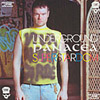 We should've seen it coming. The signs were all there. First drops that album under the Disorder 2nd Gen moniker, with "old skool" samples prominently featured. Then the 'German Engineering' CD of remixes/reworkings emerges, and one of the tracks has a total rave breakdown midway. So no one except for those greasy kids still clutching scratched copies of 'Low Profile Darkness' should be surprised upon hearing Panacea's brand spankin new 'Underground Superstardom': a hard techstep masterpiece with happy breakcore and rave roots proudly displayed. From the opening minutes of "Chartbreaka", the tone of the album is undeniably clear: retro. The beats, however, are anything but, as shown on such rugged tracks as "The Last Brotherhood" and "Cyborg". The vocal heavy tracks ("Panik Orkestra" and "Underground Superstar" in particular) stand out as personal favorites here, as divas of a forgotten age echo over delirious drum programming. And it gives me a big chubby one. Panacea's new and smoothly modified sound may not be as grimy as before, but now a stronger dancefloor sentiment prevails. Clearly this material will excel during his well-attended rave sets and I wont be surprised when I see imitators popping up all over the place within the next year. (Hey kids, guess what? Mash-up is played out! Someone had to say it...) Finally, I can confidently say that this is the best album I've heard so far in 2002 and will easily chart in my yearly Top 10 CDs. To quote the fine folks over at digitalworldnet.com (who just released a killer CD mixed by Panacea), rave is back... it's official.- Gary Suarez
We should've seen it coming. The signs were all there. First drops that album under the Disorder 2nd Gen moniker, with "old skool" samples prominently featured. Then the 'German Engineering' CD of remixes/reworkings emerges, and one of the tracks has a total rave breakdown midway. So no one except for those greasy kids still clutching scratched copies of 'Low Profile Darkness' should be surprised upon hearing Panacea's brand spankin new 'Underground Superstardom': a hard techstep masterpiece with happy breakcore and rave roots proudly displayed. From the opening minutes of "Chartbreaka", the tone of the album is undeniably clear: retro. The beats, however, are anything but, as shown on such rugged tracks as "The Last Brotherhood" and "Cyborg". The vocal heavy tracks ("Panik Orkestra" and "Underground Superstar" in particular) stand out as personal favorites here, as divas of a forgotten age echo over delirious drum programming. And it gives me a big chubby one. Panacea's new and smoothly modified sound may not be as grimy as before, but now a stronger dancefloor sentiment prevails. Clearly this material will excel during his well-attended rave sets and I wont be surprised when I see imitators popping up all over the place within the next year. (Hey kids, guess what? Mash-up is played out! Someone had to say it...) Finally, I can confidently say that this is the best album I've heard so far in 2002 and will easily chart in my yearly Top 10 CDs. To quote the fine folks over at digitalworldnet.com (who just released a killer CD mixed by Panacea), rave is back... it's official.- Gary Suarez
samples:
syntetika, "100% syntetika"
Shaped Harmonics
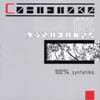 Turned on by a recommendation by Jason Bryant (of Riouxs, damn, he's never wrong), this second release for the Russian label is the first full-length album by this Saint Petersburg-based duo. You won't find any bizarre experimentation with crazy rhythms, abrasive noises or harsh melodies within. Instead it's a delicate wash of gorgeous electronic melodies and serene sounds. While it does wander that trecherous border between early Orb and new age, I honestly find myself pulling for this disc frequently when I simply want to tune out the increasingly psychotic world and soak in some valuble personal "me" time. I reached track four, "At_First," in my car once late at night, driving on an urban highway at a relatively high speed through some well-lit tunnels and that, coupled with the following beat-less aural masterpiece, "Paintings," really solidified my love for this disc. Picture the blissful sounds of some of the first Tear Garden material without abrasive cuts, vocals or samples, replaced by conjunct, languid tunes which would please anybody fond of musicians like Ulrich Schnauss. If anything, looking forward, Edda and Vladislav might want to look into updating their sounds when progressing onto their next records, but in the meantime, this album works just perfectly. Sadly, only Riouxs seems to be carrying this label right now. - Jon Whitney
Turned on by a recommendation by Jason Bryant (of Riouxs, damn, he's never wrong), this second release for the Russian label is the first full-length album by this Saint Petersburg-based duo. You won't find any bizarre experimentation with crazy rhythms, abrasive noises or harsh melodies within. Instead it's a delicate wash of gorgeous electronic melodies and serene sounds. While it does wander that trecherous border between early Orb and new age, I honestly find myself pulling for this disc frequently when I simply want to tune out the increasingly psychotic world and soak in some valuble personal "me" time. I reached track four, "At_First," in my car once late at night, driving on an urban highway at a relatively high speed through some well-lit tunnels and that, coupled with the following beat-less aural masterpiece, "Paintings," really solidified my love for this disc. Picture the blissful sounds of some of the first Tear Garden material without abrasive cuts, vocals or samples, replaced by conjunct, languid tunes which would please anybody fond of musicians like Ulrich Schnauss. If anything, looking forward, Edda and Vladislav might want to look into updating their sounds when progressing onto their next records, but in the meantime, this album works just perfectly. Sadly, only Riouxs seems to be carrying this label right now. - Jon Whitney
samples:
Guided By Voices, "Universal Truths and Cycles"
Matador
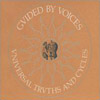 After two albums on TVT, Guided By Voices return to their label for many years, Matador Records, to release their latest opus, "Universal Truths and Cycles." It was a surprise for many that TVT was the label to pick up Pollard and co. after their split from Matador. Why would TVT, home to such bands as Gravity Kills, Naughty By Nature and Sevendust want indie songsters like Guided By Voices? (And XTC, for that matter, but that's another story...) Their return to Matador is both unexpected and welcome. Rob Pollard has described the CD as a combination of "Alien Lanes" and "Isolation Drills," though in places it seems to have more in common with "Mag Earwhig!" Either way, it brings GbV one step closer to the perfect mix of high-and-lo-fi that Pollard's been striving for years to achieve, and it's a strong collection of classic GbV. Rocking out of the gates with 'Wire Greyhounds,' the album really gets underway with the second track, 'Skin Parade.' With a little in common with 'The Enemy' off "Isolation Drills" - lo-fi beginning, with hi-fi interruption and continuation - the track unloads a furious guitar assault, with Pollard sounding like he's genuinely having a blast with the "hoo-hoos" at the end of the track. Elsewhere, the band create soaring guitar and vocal epics ('Cheyenne'), boogey rock of a new flavor ('Back to the Lake'), and one of the darkest tracks GbV have ever recorded, while still rocking out in full style with gorgeous double-tracked vocals ('Storm Vibrations'). Of course, the quirkiness is here in full force in the song titles ('Everywhere with Helicopter', 'Father Sgt. Christmas Card', 'Christian Animation Torch Carriers') and in Pollard's lyrics ("loving arms attack you/with promises for when you check out"). It's not a return to form, a regression, or a progression of their sound. It's simply another fantastic GbV record. And what more could you want? - Rob Devlin
After two albums on TVT, Guided By Voices return to their label for many years, Matador Records, to release their latest opus, "Universal Truths and Cycles." It was a surprise for many that TVT was the label to pick up Pollard and co. after their split from Matador. Why would TVT, home to such bands as Gravity Kills, Naughty By Nature and Sevendust want indie songsters like Guided By Voices? (And XTC, for that matter, but that's another story...) Their return to Matador is both unexpected and welcome. Rob Pollard has described the CD as a combination of "Alien Lanes" and "Isolation Drills," though in places it seems to have more in common with "Mag Earwhig!" Either way, it brings GbV one step closer to the perfect mix of high-and-lo-fi that Pollard's been striving for years to achieve, and it's a strong collection of classic GbV. Rocking out of the gates with 'Wire Greyhounds,' the album really gets underway with the second track, 'Skin Parade.' With a little in common with 'The Enemy' off "Isolation Drills" - lo-fi beginning, with hi-fi interruption and continuation - the track unloads a furious guitar assault, with Pollard sounding like he's genuinely having a blast with the "hoo-hoos" at the end of the track. Elsewhere, the band create soaring guitar and vocal epics ('Cheyenne'), boogey rock of a new flavor ('Back to the Lake'), and one of the darkest tracks GbV have ever recorded, while still rocking out in full style with gorgeous double-tracked vocals ('Storm Vibrations'). Of course, the quirkiness is here in full force in the song titles ('Everywhere with Helicopter', 'Father Sgt. Christmas Card', 'Christian Animation Torch Carriers') and in Pollard's lyrics ("loving arms attack you/with promises for when you check out"). It's not a return to form, a regression, or a progression of their sound. It's simply another fantastic GbV record. And what more could you want? - Rob Devlin
samples:
ISAN, "Clockwork Menagerie"
Morr Music
 This compilation brings together several early and now hard-to-find singles by Britain's prolific ISAN, comprised of Robin Saville and Antony Ryan. The tracks, which come primarily from 7"s dating from 1997 to 1999 on labels like Wurlitzer Jukebox, Earworm and Bad Jazz, breathe new life into a genre which, especially as of late, has begun to flounder with acts that are virtually indistinguishable. "Autolung" is an exhibition of their hypnotic, haunting signature sound: ISAN's brand of electronic music is introspective without over-intellectualization, and is often childlike, but never infantile, particularly with regards to the choice of vocal samples they sometimes use. "Damil 85", which makes use of such a sample, is brilliant, and quite possibly one of the best tracks the duo has ever done. "Remegio" is full of a chilling and melancholy beauty. Understated yet often playful beats ebb and flow seamlessly and consistently throughout every piece. Another gem from from the lovely Morr Music. - Jessica Tibbits
This compilation brings together several early and now hard-to-find singles by Britain's prolific ISAN, comprised of Robin Saville and Antony Ryan. The tracks, which come primarily from 7"s dating from 1997 to 1999 on labels like Wurlitzer Jukebox, Earworm and Bad Jazz, breathe new life into a genre which, especially as of late, has begun to flounder with acts that are virtually indistinguishable. "Autolung" is an exhibition of their hypnotic, haunting signature sound: ISAN's brand of electronic music is introspective without over-intellectualization, and is often childlike, but never infantile, particularly with regards to the choice of vocal samples they sometimes use. "Damil 85", which makes use of such a sample, is brilliant, and quite possibly one of the best tracks the duo has ever done. "Remegio" is full of a chilling and melancholy beauty. Understated yet often playful beats ebb and flow seamlessly and consistently throughout every piece. Another gem from from the lovely Morr Music. - Jessica Tibbits
samples:
VAN BERGEN / PRINS / FENNESZ, "DAWN"
Grob
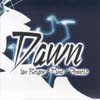 Fennesz 'Endless Summer' was the big across board hit of last year, obviously much more interesting in it's original invention than Radiohead's thinly veiled Elton John impressions or Bjork's vaudeville sugar puff powderings. 'Endless Summer' appealed to blandpiggys and noizheds alike and it was quite interesting to see the diverse music it rubbed shoulders with in all those yearend bestlisten lists. Fennesz stays visible with ever more recordings of varied live encounters, and although I haven't yet heard his Mika Vainio collaboration that got a slating from Nate Smith a couple of months back, I've always found that, like Otomo Yoshihide, for Fennesz quantity does not negate quality. This three way improvisation, recorded late in 2000, takes a classic improvisation approach, in as much as AMM could be considered classic, but these artists are daubing from a very distinctive noise pallet. There are some very obvious similarities to AMM in the way they slowly build up morphing dense layers from almost nothing, sewing in occasional hacked fragments of radiopops. Fennesz might have started it with a sampled fractious descending piano run, but then again it could've been Gert-Jan Prins' kick off, or perhaps Van Bergen was actually playing a piano? The haunting beauty unfolds from radiocaptures and junk contraptions complimenting the familiar Fennesz gentle guitarshift distortion textures for Peter Van Bergen's understated but understanding saxophone to unwind around, blurting camouflaged in strange new ruptured lung distortion fractions. A quarter hour in he fires off some almost classic free jazz moves that quickly get torn apart by effects and spat back into the whirling void, all mangled and digidiminished. Whilst the prospect of having to switch the blip-attention spans on to a single forty two minute track might put off some blandpiggys, and noizheads might make gripewater out of the ever dipping levels and relatively reflective yet murky pools here and there, this is definitely more than just a worthy and curious addition to the ever expanding Fennesz ouevre. The crescendo at around the half hour point is top notch liberating primal freenoise, piling up variegated deep drones to breaking point. They drop down again to let piano patter and metal chimes ring over the digisplutter and zoom focus lens splatter squeals but it builds again to a warped summer ending. These noisemakers play it organic, so that it becomes difficult to separate any individual chaos panic. They also bring an intuitive understanding of electro-acoustic sudden shock echoblam to their constantly mutating crunchy evolution. 'Dawn' makes me curious to hear more from Van Bergen and especially Prins, whose noise patchwork free skronking with Lee Ranaldo made for a surprising Radio 3 highlight a couple of years back, a recording which was made on a night when I was across London town listening to Wire. Sometimes it seems there's so much happening you just need to split yourself in two to experience it all, which makes me glad that Fennesz makes these recordings of live situations. When the sun rises, I will listen. - Graeme Rowland
Fennesz 'Endless Summer' was the big across board hit of last year, obviously much more interesting in it's original invention than Radiohead's thinly veiled Elton John impressions or Bjork's vaudeville sugar puff powderings. 'Endless Summer' appealed to blandpiggys and noizheds alike and it was quite interesting to see the diverse music it rubbed shoulders with in all those yearend bestlisten lists. Fennesz stays visible with ever more recordings of varied live encounters, and although I haven't yet heard his Mika Vainio collaboration that got a slating from Nate Smith a couple of months back, I've always found that, like Otomo Yoshihide, for Fennesz quantity does not negate quality. This three way improvisation, recorded late in 2000, takes a classic improvisation approach, in as much as AMM could be considered classic, but these artists are daubing from a very distinctive noise pallet. There are some very obvious similarities to AMM in the way they slowly build up morphing dense layers from almost nothing, sewing in occasional hacked fragments of radiopops. Fennesz might have started it with a sampled fractious descending piano run, but then again it could've been Gert-Jan Prins' kick off, or perhaps Van Bergen was actually playing a piano? The haunting beauty unfolds from radiocaptures and junk contraptions complimenting the familiar Fennesz gentle guitarshift distortion textures for Peter Van Bergen's understated but understanding saxophone to unwind around, blurting camouflaged in strange new ruptured lung distortion fractions. A quarter hour in he fires off some almost classic free jazz moves that quickly get torn apart by effects and spat back into the whirling void, all mangled and digidiminished. Whilst the prospect of having to switch the blip-attention spans on to a single forty two minute track might put off some blandpiggys, and noizheads might make gripewater out of the ever dipping levels and relatively reflective yet murky pools here and there, this is definitely more than just a worthy and curious addition to the ever expanding Fennesz ouevre. The crescendo at around the half hour point is top notch liberating primal freenoise, piling up variegated deep drones to breaking point. They drop down again to let piano patter and metal chimes ring over the digisplutter and zoom focus lens splatter squeals but it builds again to a warped summer ending. These noisemakers play it organic, so that it becomes difficult to separate any individual chaos panic. They also bring an intuitive understanding of electro-acoustic sudden shock echoblam to their constantly mutating crunchy evolution. 'Dawn' makes me curious to hear more from Van Bergen and especially Prins, whose noise patchwork free skronking with Lee Ranaldo made for a surprising Radio 3 highlight a couple of years back, a recording which was made on a night when I was across London town listening to Wire. Sometimes it seems there's so much happening you just need to split yourself in two to experience it all, which makes me glad that Fennesz makes these recordings of live situations. When the sun rises, I will listen. - Graeme Rowland
samples:
current 93/thomas ligotti, "in a foreign town, in a foreign land"
Durtro
 I think there comes a time (or rather, a number of times) when a music enthusiast/record collector finally becomes hooked on something they never really paid much attention to for years and just think over and over again, "damn, what was I thinking?" This holds true for me and Christoph Heemann's work and the music contained herein is no exception. Originally released as a limited edition in 1997, the music on this disc accompanies four short stories by Thomas Ligotti written for David Tibet. The musical accompaniment by Christoph Heemann and Steven Stapleton is intense enough to stand on its own yet subtle enough to be read along to as recommended in the booklet. Low, rumbling drones underscore fleeting sound effects and garbled voices throughout the opener, "His Shadow Will Rise to a Higher House" and a tuba melody "A Soft Voice Whispers Nothing," while echoed and layered bells ring out during the haunting "The Bells Will Sound Forever." Only rarely will a voice pop in from Tibet, Andria Degens (Pantaleimon) or Shirley Collins, narrating small portions of the text, essentially performing the role as suggestive guidelines as to where the story should be. The voices aren't overbearing but I'm really in mixed worlds whether to think the narration should run throughout or the music should be completely instrumental. The stories by Ligotti are rather entertaining and a light read, but my lack of ability to respectfully critique fiction can't go much deeper into them than that. All the text and artwork has been reprinted from the first edition, however, this version is unfortunately in a rather chinchy digipack when compared to the hardcover original. Regardless, the music is essential for any fanatic Mirror fan and could easily make a Heemann fan out of any existing C93 fan. - Jon Whitney
I think there comes a time (or rather, a number of times) when a music enthusiast/record collector finally becomes hooked on something they never really paid much attention to for years and just think over and over again, "damn, what was I thinking?" This holds true for me and Christoph Heemann's work and the music contained herein is no exception. Originally released as a limited edition in 1997, the music on this disc accompanies four short stories by Thomas Ligotti written for David Tibet. The musical accompaniment by Christoph Heemann and Steven Stapleton is intense enough to stand on its own yet subtle enough to be read along to as recommended in the booklet. Low, rumbling drones underscore fleeting sound effects and garbled voices throughout the opener, "His Shadow Will Rise to a Higher House" and a tuba melody "A Soft Voice Whispers Nothing," while echoed and layered bells ring out during the haunting "The Bells Will Sound Forever." Only rarely will a voice pop in from Tibet, Andria Degens (Pantaleimon) or Shirley Collins, narrating small portions of the text, essentially performing the role as suggestive guidelines as to where the story should be. The voices aren't overbearing but I'm really in mixed worlds whether to think the narration should run throughout or the music should be completely instrumental. The stories by Ligotti are rather entertaining and a light read, but my lack of ability to respectfully critique fiction can't go much deeper into them than that. All the text and artwork has been reprinted from the first edition, however, this version is unfortunately in a rather chinchy digipack when compared to the hardcover original. Regardless, the music is essential for any fanatic Mirror fan and could easily make a Heemann fan out of any existing C93 fan. - Jon Whitney
samples:
David Grubbs, "Rickets & Scurvy"
Drag City (North America) / Fat Cat (Europe)
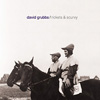 Gastr del Sol, with their complicated arrangements, electronic interludes, and guitar work drawn from obscure North American folk and rock influences, would have been more than qualified to take a marketable place amongst the identikit post-rock outfits doing the rounds in the mid-nineties. But instead of achieving Tortoise-proportioned recognition, they remained a relative obscurity, and perhaps part of the reason for that was David Grubbs's unique vocal and lyrical contribution.
Gastr del Sol, with their complicated arrangements, electronic interludes, and guitar work drawn from obscure North American folk and rock influences, would have been more than qualified to take a marketable place amongst the identikit post-rock outfits doing the rounds in the mid-nineties. But instead of achieving Tortoise-proportioned recognition, they remained a relative obscurity, and perhaps part of the reason for that was David Grubbs's unique vocal and lyrical contribution.
Without any conventional rock affectations, his delivery is plain, personal and a little nerdy. His lyrics are unabashedly intellectual, ranging from impenetrable abstraction to philosophical investigations into everything from time-zone changes to the qualities of light. So Grubbs drew Gastr del Sol, and now his solo work, away from easy categorisation as post-rock. Yet I like to think of Grubbs as the unintended voice of the post-rock movement: someone who had the guts to put its geekiness into words.
Following on from 1998's 'The Thicket' and 2000's 'The Spectrum Between,' this record improves on both: where the former was heavy with addition musical backing, and the latter placed most emphasis on Grubbs's guitar and vocals, the production here is a nice balance. When Grubbs played recently at The Spitz in London, with acoustic guitar and occasional laptop playback, these songs seemed bare and hurried. But here they're more relaxed, improved by a small backing band which consists of some the usual stars, notably John McEntire and Noel Akchote, as well as drummer Dan Brown and some understated electronic and field-recorded assistance from Matmos and Nicolas Vernhes.
The album opens with the poppy "Transom," which starts with Matmos's electronics, turning to fast-paced electric guitar, before almost rocking out at the end. But 'Rickets' consists mostly of contemplative, occasionally upbeat songs comparable to 'The Spectrum Between,' discussing such subjects as dreams, air-travel nerves, and other things that are pretty inscrutable, to be honest.
Later on, Matmos get the floor to themselves on the short instrumentals "Precipice" and "Crevasse". Then Grubbs closes the album with "Kentucky Karaoke," a beautiful piano solo over which he slowly intones a simple lyric, while the piano slowly warps under subtle processing. It's reminiscent of the Gastr classic "Eight Corners," and is easily my favourite solo Grubbs track: an excellent ending to a more than usually solid album. - Andrew Shires
samples:
John Zorn, "IAO: Music in Sacred Light"
Tzadik
 "The name IAO is Kabbalistically identical to the Beast and his number is 666." John Zorn's new album consists of a seven-movement suite that brings his obsessions with Alchemy, Metaphysics and the work of Kenneth Anger to the fore. Continuing Zorn and Tzadik's tradition of excellent packaging, the CD is accompanied by a series of postcard-styled inserts, each bearing Kabbalistic signs, arcane scribblings and credits printed in a lovely but nearly undecipherable typeface. Musically, "IAO" is a consolidation of Zorn's recent artistic developments: the complex writing of "Madness, Love and Mysticism", the electronic experimentation of "Songs from the Hermetic Theatre" and the fascination with easy listening/exotica explored on "The Gift" have been beautifully integrated into his syncretic style. The first movement, "Invocation," sets a strange scene: a knife is sharpened and water or blood is splashed about as someone chants off in the distance and Jamie Saft plays spooky organ. "Sex Magick" is more of Cyro Baptista's astounding trance drumming, such as was heard on "Taboo and Exile". The mesmeric, time-obliterating property of the piece is remarkable and it would, indeed, be a perfect compliment to the titular activity. "Sacred Rites of the Left Hand Path," the third movement, combines Saft's jazzily syncopated piano with electronic sounds in a tune filled with both whimsy and threat. "The Clavicle of Solomon" is the deeply weird piece that follows, made up of high-frequency digital tones and creepy microtonal melodies. The erotic resurfaces in the fifth movement, "Lucifer Rising," for female chorus. It is led by the incredibly sexy-voiced Jennifer Charles (of the wonderful group Elysian Fields), who vacillates between menacing, incantatory and ecstatic as she moans, groans, shudders and whispers through the piece. The aptly titled "Leviathan" follows, a death metal monstrosity that collapses in on itself under the enormous weight of Bill Laswell's thunderous bass, becoming a howling vortex of noise sucking up backwards cymbals and Mike Patton as he shreds his larynx. "IAO" then settles into the final movement, the dark and peaceful "Mysteries", which has a feeling of resolution about it. As a whole, this record succeeds brilliantly. It is, like all the best albums, its own sound-world to be explored, a world of great mystery and wonder. Part of its genius is in its construction. While Zorn never restates a theme, he consistently returns to specific moods. In "IAO" the form is forgotten and the feelings become the form. - Travis Johnson
"The name IAO is Kabbalistically identical to the Beast and his number is 666." John Zorn's new album consists of a seven-movement suite that brings his obsessions with Alchemy, Metaphysics and the work of Kenneth Anger to the fore. Continuing Zorn and Tzadik's tradition of excellent packaging, the CD is accompanied by a series of postcard-styled inserts, each bearing Kabbalistic signs, arcane scribblings and credits printed in a lovely but nearly undecipherable typeface. Musically, "IAO" is a consolidation of Zorn's recent artistic developments: the complex writing of "Madness, Love and Mysticism", the electronic experimentation of "Songs from the Hermetic Theatre" and the fascination with easy listening/exotica explored on "The Gift" have been beautifully integrated into his syncretic style. The first movement, "Invocation," sets a strange scene: a knife is sharpened and water or blood is splashed about as someone chants off in the distance and Jamie Saft plays spooky organ. "Sex Magick" is more of Cyro Baptista's astounding trance drumming, such as was heard on "Taboo and Exile". The mesmeric, time-obliterating property of the piece is remarkable and it would, indeed, be a perfect compliment to the titular activity. "Sacred Rites of the Left Hand Path," the third movement, combines Saft's jazzily syncopated piano with electronic sounds in a tune filled with both whimsy and threat. "The Clavicle of Solomon" is the deeply weird piece that follows, made up of high-frequency digital tones and creepy microtonal melodies. The erotic resurfaces in the fifth movement, "Lucifer Rising," for female chorus. It is led by the incredibly sexy-voiced Jennifer Charles (of the wonderful group Elysian Fields), who vacillates between menacing, incantatory and ecstatic as she moans, groans, shudders and whispers through the piece. The aptly titled "Leviathan" follows, a death metal monstrosity that collapses in on itself under the enormous weight of Bill Laswell's thunderous bass, becoming a howling vortex of noise sucking up backwards cymbals and Mike Patton as he shreds his larynx. "IAO" then settles into the final movement, the dark and peaceful "Mysteries", which has a feeling of resolution about it. As a whole, this record succeeds brilliantly. It is, like all the best albums, its own sound-world to be explored, a world of great mystery and wonder. Part of its genius is in its construction. While Zorn never restates a theme, he consistently returns to specific moods. In "IAO" the form is forgotten and the feelings become the form. - Travis Johnson
samples:
the funerals, "pathetic me"
TMT
 This is what happens when you grab a handful of Icelandic musicians and lock them in a cabin for a couple weekends by the fire until they've recorded an album. For something as ad hoc, it remarkably sounds like a band who's shared a number of years and a number of beers, and for a group which includes members of electro super-nerds Trabant (and released on the label that issued them and Múm), it's entirely organic, with a lazy, almost clumsy drive not entirely unlike Molasses or Will Oldham records without the whininess. With one female and two male vocalists, the subjects covered are nothing deep at all, including girls, drinking, pimple-faced teenagers, mothers and the weather. Perhaps obsessed with a number of Louisville bands who made it out or romanticizing about playing in a cheap western bar where fat rednecks only drink cheap beer from a can, the Funerals make me wonder why more bands don't play the truckstop circuit. - Jon Whitney
This is what happens when you grab a handful of Icelandic musicians and lock them in a cabin for a couple weekends by the fire until they've recorded an album. For something as ad hoc, it remarkably sounds like a band who's shared a number of years and a number of beers, and for a group which includes members of electro super-nerds Trabant (and released on the label that issued them and Múm), it's entirely organic, with a lazy, almost clumsy drive not entirely unlike Molasses or Will Oldham records without the whininess. With one female and two male vocalists, the subjects covered are nothing deep at all, including girls, drinking, pimple-faced teenagers, mothers and the weather. Perhaps obsessed with a number of Louisville bands who made it out or romanticizing about playing in a cheap western bar where fat rednecks only drink cheap beer from a can, the Funerals make me wonder why more bands don't play the truckstop circuit. - Jon Whitney
samples:
Yume Bitsu, "Golden Vessyl of Sound"
K
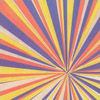 So I'm in a local favorite bistro having dinner with my parents, wearing my Mogwai T-shirt, and I'm on my way to the bathroom when the guitarist for the in-house jazz combo comes up to me. "Mogwai!" he says. "My son's in a band, and they get compared to Mogwai a lot. You should check them out!" Who are they? "Yume Bitsu," he says, "on K Records." I leave after dinner, never bothering to check out the band. A few days later, what should arrive in my mailbox as a new CD to review? Yume Bitsu on K Records. A thought suddenly occurs to me: "Am I somehow linked to this band karmically? Am I supposed to review this band to complete some bizarre circle of events that will bring great fame and fortune to some small family in eastern Milwaukee? Have I lost my mind?" I chose the latter, but decided to review the record anyway. Yume Bitsu are sound collage artists. They get compared to Mogwai a lot probably because they create epic instrumentals with rock instruments. It is NOT a fair comparison. To start with, Yume Bitsu, on this release particularly, create their music vastly through recorded improvisation, where Mogwai are very structured, right down to each loud-soft-loud moment. Secondly, Mogwai are Scottish. Yume Bitsu? Not Scottish. And lastly, Yume Bitsu, on this release, chose not to name the tracks. Mogwai takes great pride in naming their tracks, I assure you. All kidding aside, this record is really impressive. It's halfway between all out drone rock, and laborious post-rock. This release is particularly disparate, though the band has always been difficult to assign to a specific genre. Each track, though, seems to take on a mind of its own, with the players merely translators for the higher power. Fitting, it seems, as the band claims the music comes from a channel of energy that is greater than the sum of the musicians. Guitars, keyboards, and drums blend and mate beautifully, creating music that is not unlike Landing and Windy and Carl (name-watchers: if you like those bands BUY THIS RECORD). I found myself constantly blocking the same thought in my head: "IT NEEDS STRUCTURE! IT NEEDS MORE STRUCTURE!" No, it doesn't. This music is just fine as it is, despite the fact that one of its members' father tried to push it on me in a local bistro. - Rob Devlin
So I'm in a local favorite bistro having dinner with my parents, wearing my Mogwai T-shirt, and I'm on my way to the bathroom when the guitarist for the in-house jazz combo comes up to me. "Mogwai!" he says. "My son's in a band, and they get compared to Mogwai a lot. You should check them out!" Who are they? "Yume Bitsu," he says, "on K Records." I leave after dinner, never bothering to check out the band. A few days later, what should arrive in my mailbox as a new CD to review? Yume Bitsu on K Records. A thought suddenly occurs to me: "Am I somehow linked to this band karmically? Am I supposed to review this band to complete some bizarre circle of events that will bring great fame and fortune to some small family in eastern Milwaukee? Have I lost my mind?" I chose the latter, but decided to review the record anyway. Yume Bitsu are sound collage artists. They get compared to Mogwai a lot probably because they create epic instrumentals with rock instruments. It is NOT a fair comparison. To start with, Yume Bitsu, on this release particularly, create their music vastly through recorded improvisation, where Mogwai are very structured, right down to each loud-soft-loud moment. Secondly, Mogwai are Scottish. Yume Bitsu? Not Scottish. And lastly, Yume Bitsu, on this release, chose not to name the tracks. Mogwai takes great pride in naming their tracks, I assure you. All kidding aside, this record is really impressive. It's halfway between all out drone rock, and laborious post-rock. This release is particularly disparate, though the band has always been difficult to assign to a specific genre. Each track, though, seems to take on a mind of its own, with the players merely translators for the higher power. Fitting, it seems, as the band claims the music comes from a channel of energy that is greater than the sum of the musicians. Guitars, keyboards, and drums blend and mate beautifully, creating music that is not unlike Landing and Windy and Carl (name-watchers: if you like those bands BUY THIS RECORD). I found myself constantly blocking the same thought in my head: "IT NEEDS STRUCTURE! IT NEEDS MORE STRUCTURE!" No, it doesn't. This music is just fine as it is, despite the fact that one of its members' father tried to push it on me in a local bistro. - Rob Devlin
samples:
"the asthmatic worm"
Mobile
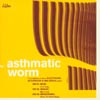 Pulling off a themed compilation with a number of better-known musical artists is not the easiest thing to do, so I commend this new label, Mobile, for piecing together something this consistent. The theme basically rides a current trend in electronic music, incorporating the usage of accordion (historically referred to as an asthmatic worm) and the simpler, yet similar sounding melodica. Unfortunately, of the twelve tracks, only two (Dntel and Markus Nikolai) are exclusive to this compilation. While I clearly love Múm, I'm wondering who would be shopping for this compilation who hasn't heard this album track from 'Yesterday Was Dramatic', but in all fairness, it is quite complimentary to the rest of the compilation, which includes common underground electro-celebs Atom TM, Matthew Herbert's Doctor Rockit, Ekkehard Ehlers (as Maerz with Albrecht Kunze), Burnt Friedman & Jakt Liebezeit and Gonzales. Unexpected treats include the pleasant head-nod from Sensorama, a gipsy folk-esque song from a band simply titled Hey, and a French film score-mimicing contribution from Gotan Project. Jimmy Tamborello of Dntel sounds like he recruited that singer from Casiotone for the Painfully Alone for a gorgeous track which perfectly compliments last year's stunning Dntel album on Plug Research and Wechsel Garland incorporate the star instrument into a laid-back organ, vibe, bass and drum jam, making me wish I knew more about this artist. It might not be the most original compilation you'll find but it sure does sound good. - Jon Whitney
Pulling off a themed compilation with a number of better-known musical artists is not the easiest thing to do, so I commend this new label, Mobile, for piecing together something this consistent. The theme basically rides a current trend in electronic music, incorporating the usage of accordion (historically referred to as an asthmatic worm) and the simpler, yet similar sounding melodica. Unfortunately, of the twelve tracks, only two (Dntel and Markus Nikolai) are exclusive to this compilation. While I clearly love Múm, I'm wondering who would be shopping for this compilation who hasn't heard this album track from 'Yesterday Was Dramatic', but in all fairness, it is quite complimentary to the rest of the compilation, which includes common underground electro-celebs Atom TM, Matthew Herbert's Doctor Rockit, Ekkehard Ehlers (as Maerz with Albrecht Kunze), Burnt Friedman & Jakt Liebezeit and Gonzales. Unexpected treats include the pleasant head-nod from Sensorama, a gipsy folk-esque song from a band simply titled Hey, and a French film score-mimicing contribution from Gotan Project. Jimmy Tamborello of Dntel sounds like he recruited that singer from Casiotone for the Painfully Alone for a gorgeous track which perfectly compliments last year's stunning Dntel album on Plug Research and Wechsel Garland incorporate the star instrument into a laid-back organ, vibe, bass and drum jam, making me wish I knew more about this artist. It might not be the most original compilation you'll find but it sure does sound good. - Jon Whitney
samples:
Main, "Tau"
K-RAA-K
 Marking the much-anticpated return of Main, this album is much more along the lines of a microsound record than that of Robert Hampson's former Beggars' Banquet days doing guitar-based soundscapes. 'Tau' is very stripped down and clean, and features a dryness and lightness that heretofore has not been prevalent in Main releases. The otherwise untitled tracks are divided into two sections: "Heuristic" (the first five) and "Mirror" (the last three). Digital bursts give way to fragile yet angular planes of noise. Low pulsing echoes and drones lay underneath twitches and scratches. 'Tau' seems more prone to interruptions and unease as opposed to his former rhythmic lull, and as evidenced in the third track, is very spatial: Hampson is able to create feelings of both vastness and minutiae simultaneously. On the eighth track, the reverberation of footsteps down a hall and nearly inaudible fragments of a voice infuse a human element, which nevertheless remains somewhat clinical. It is likely due to Hampson's background with Loop and his previous Main records that his new microsound leanings are infused with an uncommon depth.
- Jessica Tibbits
Marking the much-anticpated return of Main, this album is much more along the lines of a microsound record than that of Robert Hampson's former Beggars' Banquet days doing guitar-based soundscapes. 'Tau' is very stripped down and clean, and features a dryness and lightness that heretofore has not been prevalent in Main releases. The otherwise untitled tracks are divided into two sections: "Heuristic" (the first five) and "Mirror" (the last three). Digital bursts give way to fragile yet angular planes of noise. Low pulsing echoes and drones lay underneath twitches and scratches. 'Tau' seems more prone to interruptions and unease as opposed to his former rhythmic lull, and as evidenced in the third track, is very spatial: Hampson is able to create feelings of both vastness and minutiae simultaneously. On the eighth track, the reverberation of footsteps down a hall and nearly inaudible fragments of a voice infuse a human element, which nevertheless remains somewhat clinical. It is likely due to Hampson's background with Loop and his previous Main records that his new microsound leanings are infused with an uncommon depth.
- Jessica Tibbits
samples:
KRIEGER, "Denn Dien Ist Das Reich" CD-R
Steinklang Records
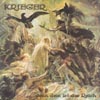 So I went and bought the new Krieger CD-R since it's presented by Rasthof Dachau, and I was a fan of their first rythmic power electronics LP entitled "Blut Und Boden." And holy shit, did i waste my money. There is absolutely nothing worthwhile to this release, as it's just a bunch of shitty orchestral samples over some equally shitty dark ambient soundtrack with some German vocals, and at some point what is most likely the rambling of some white supremicist talking over it. And no, I can't describe the disc any further, because that's what the whole damn thing sounds like. But no matter how bad I tell you it is, some of you are still going to buy it. "Why?" you ask? Because Rasthof Dachau are like cool and they like put out some split video with Genocide Organ. Since I can't even find out who the hell the artist is, I'm convinced this is really Genocide Organ under a pseudonym. We all know those 30 year old, misogynist, virgin, it-loving, noise record collectors still living in their mom's basement need to own this and simply can't live without it, so they'll pay ridiculous prices on ebay. Mr. Dachau is laughing all the way to the bank with this fine waste of plastic. The only decent thing I can say about this is that at least it doesn't have any artwork with dead bodies, raped women, or holocaust-related motifs that are prevalent in this oh-so-wonderful power noise genre. In an ideal world, I'd be able to tell whether or not a CD is good just by its cover art, and in this case, the cover should have had some shit-fetishist defecating into his mother's mouth so I could get a taste of what this CD is all about. - Edward Andrews
So I went and bought the new Krieger CD-R since it's presented by Rasthof Dachau, and I was a fan of their first rythmic power electronics LP entitled "Blut Und Boden." And holy shit, did i waste my money. There is absolutely nothing worthwhile to this release, as it's just a bunch of shitty orchestral samples over some equally shitty dark ambient soundtrack with some German vocals, and at some point what is most likely the rambling of some white supremicist talking over it. And no, I can't describe the disc any further, because that's what the whole damn thing sounds like. But no matter how bad I tell you it is, some of you are still going to buy it. "Why?" you ask? Because Rasthof Dachau are like cool and they like put out some split video with Genocide Organ. Since I can't even find out who the hell the artist is, I'm convinced this is really Genocide Organ under a pseudonym. We all know those 30 year old, misogynist, virgin, it-loving, noise record collectors still living in their mom's basement need to own this and simply can't live without it, so they'll pay ridiculous prices on ebay. Mr. Dachau is laughing all the way to the bank with this fine waste of plastic. The only decent thing I can say about this is that at least it doesn't have any artwork with dead bodies, raped women, or holocaust-related motifs that are prevalent in this oh-so-wonderful power noise genre. In an ideal world, I'd be able to tell whether or not a CD is good just by its cover art, and in this case, the cover should have had some shit-fetishist defecating into his mother's mouth so I could get a taste of what this CD is all about. - Edward Andrews
samples:
Looper, "The Snare"
Mute
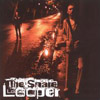 Whether you think you have or not, you've heard Looper. The side project turned main project of Stuart David, departed bass player of twee rock outfit Belle and Sebastian, Looper have had music featured in commercials and films - 'Mondo '77' from their 2000 offering "The Geometrid" was a featured track in Cameron Crowe's disastrous "Vanilla Sky". The band is essentially David, his wife Karn, and his little brother Ronnie Black. On this album, however, Looper's first for Mute Records, it would seem that David has a few other collaborators who have changed the landscape for Looper forever. The album was inspired by David's second novel, "The Peacock Manifesto", and - as a partial settlement of authorship disputes over the novel between David and his main character Peacock Johnson - the album "features" Peacock and saxophonist Evil Bob. Whether or not these two exist as more than a publicity vehicle for the new record remains to be seen. However, their "presence" has altered Looper into a noir film soundtrack band with and R&B heart. So, now, whether you've heard Looper or not, you've never heard Looper like this. "The Snare" is an homage to darker underbellies - a dance version of Glen Campbell's "Rhinestone Cowboy", the aim of Peacock Johnson, it isn't. It's far removed from Looper's poppier fare from first track to the last. It's Looper's seeming tribute to modern music by way of earlier influences. That's right: it's like Looper making an album with Missy Eliott. With the Davids singing. I know, the description sounds bad. And the record isn't the best thing Looper have done. In fact, it just smacks of "We know we've been pretty disposable up until now, so here's a more mature album for ya!" The whole album has the same drum sound, the same vocals, the same bass sound. It's meant to be a concept album where all tracks tie together, but they only contain the same elements. There appears to be no growth from previous releases. In fact, the only track that holds any promise is the final one, 'Fucking Around', and that's because it sounds vaguely like David's time with Belle and Sebastian. I'd give it the whole record a pass, really, but try it out because it might be your bag, man. - Rob Devlin
Whether you think you have or not, you've heard Looper. The side project turned main project of Stuart David, departed bass player of twee rock outfit Belle and Sebastian, Looper have had music featured in commercials and films - 'Mondo '77' from their 2000 offering "The Geometrid" was a featured track in Cameron Crowe's disastrous "Vanilla Sky". The band is essentially David, his wife Karn, and his little brother Ronnie Black. On this album, however, Looper's first for Mute Records, it would seem that David has a few other collaborators who have changed the landscape for Looper forever. The album was inspired by David's second novel, "The Peacock Manifesto", and - as a partial settlement of authorship disputes over the novel between David and his main character Peacock Johnson - the album "features" Peacock and saxophonist Evil Bob. Whether or not these two exist as more than a publicity vehicle for the new record remains to be seen. However, their "presence" has altered Looper into a noir film soundtrack band with and R&B heart. So, now, whether you've heard Looper or not, you've never heard Looper like this. "The Snare" is an homage to darker underbellies - a dance version of Glen Campbell's "Rhinestone Cowboy", the aim of Peacock Johnson, it isn't. It's far removed from Looper's poppier fare from first track to the last. It's Looper's seeming tribute to modern music by way of earlier influences. That's right: it's like Looper making an album with Missy Eliott. With the Davids singing. I know, the description sounds bad. And the record isn't the best thing Looper have done. In fact, it just smacks of "We know we've been pretty disposable up until now, so here's a more mature album for ya!" The whole album has the same drum sound, the same vocals, the same bass sound. It's meant to be a concept album where all tracks tie together, but they only contain the same elements. There appears to be no growth from previous releases. In fact, the only track that holds any promise is the final one, 'Fucking Around', and that's because it sounds vaguely like David's time with Belle and Sebastian. I'd give it the whole record a pass, really, but try it out because it might be your bag, man. - Rob Devlin
samples:
We know that sometimes these CDs are somewhat challenging to find, which is why we have a community section which can be used to obtain nearly everything available on this site. |